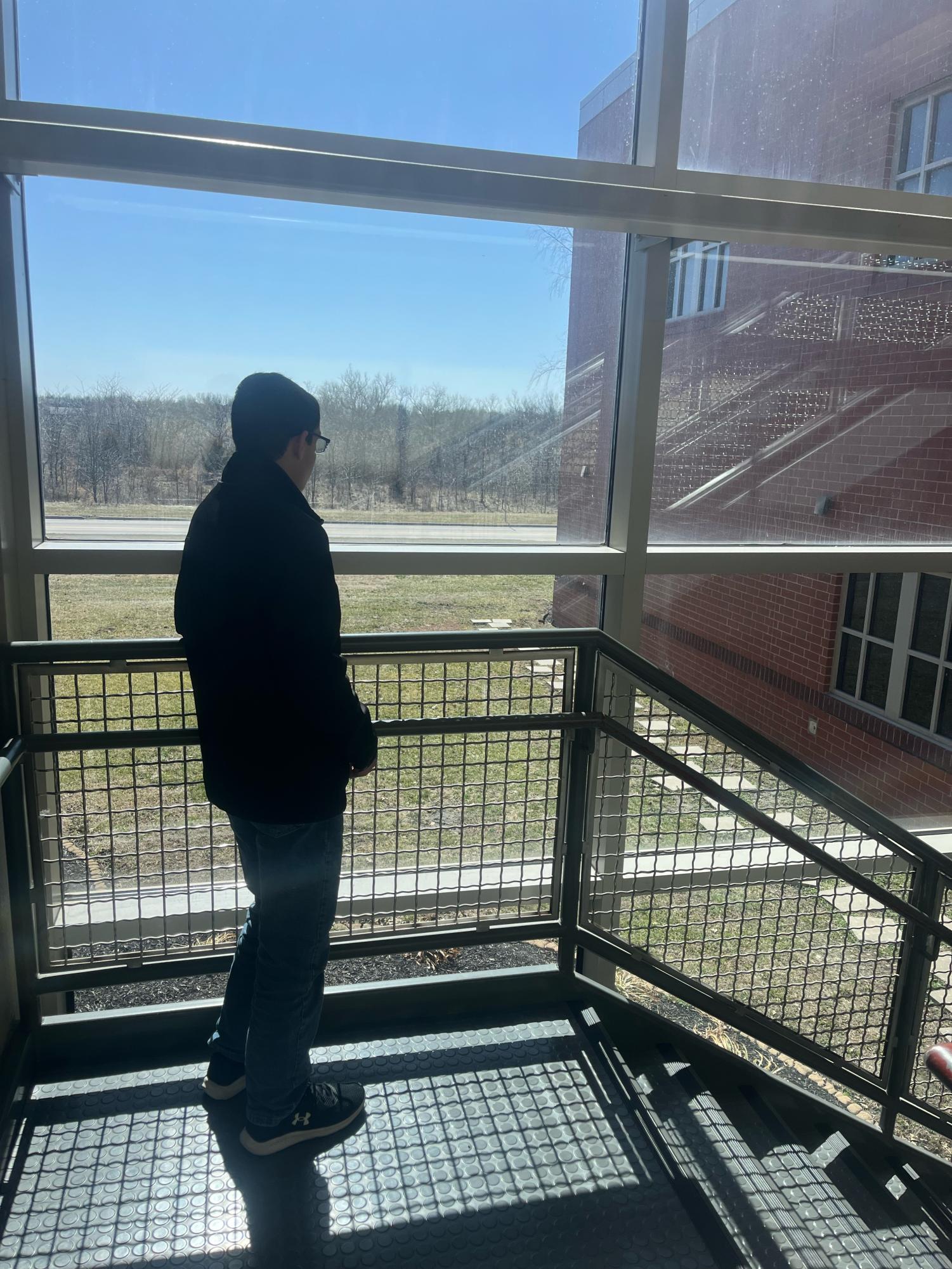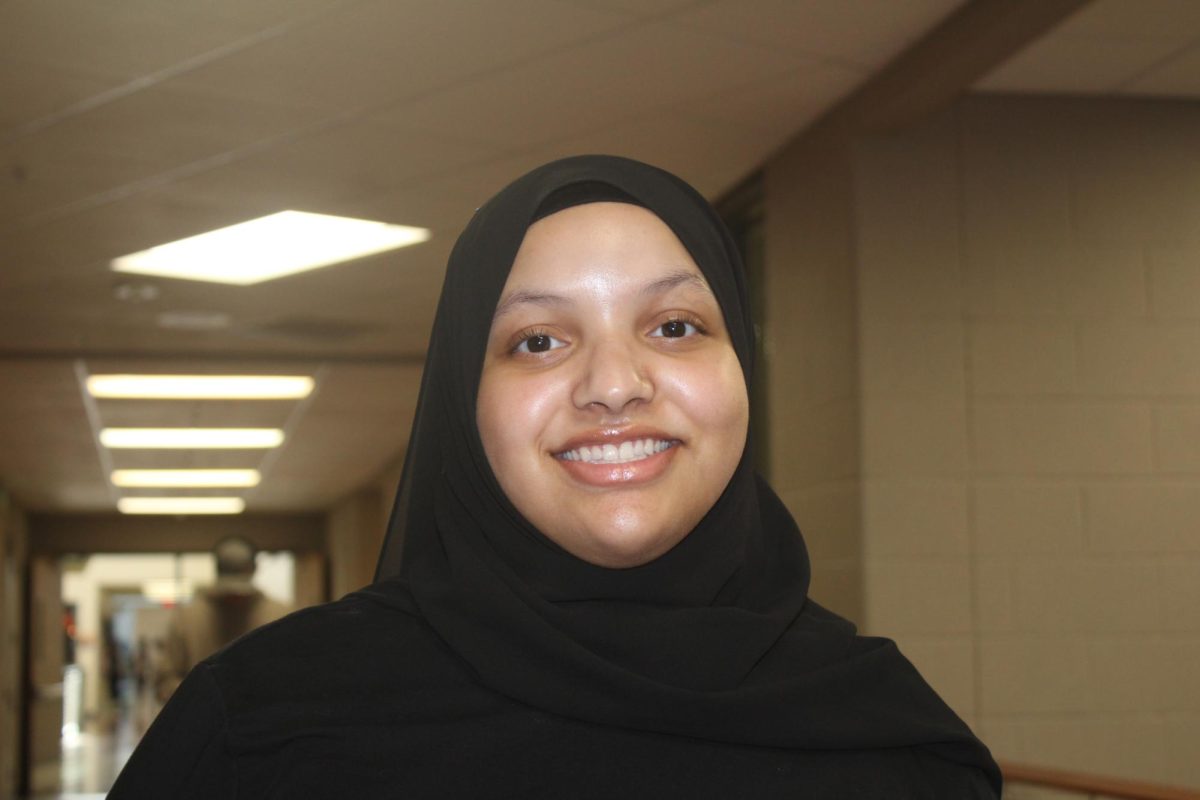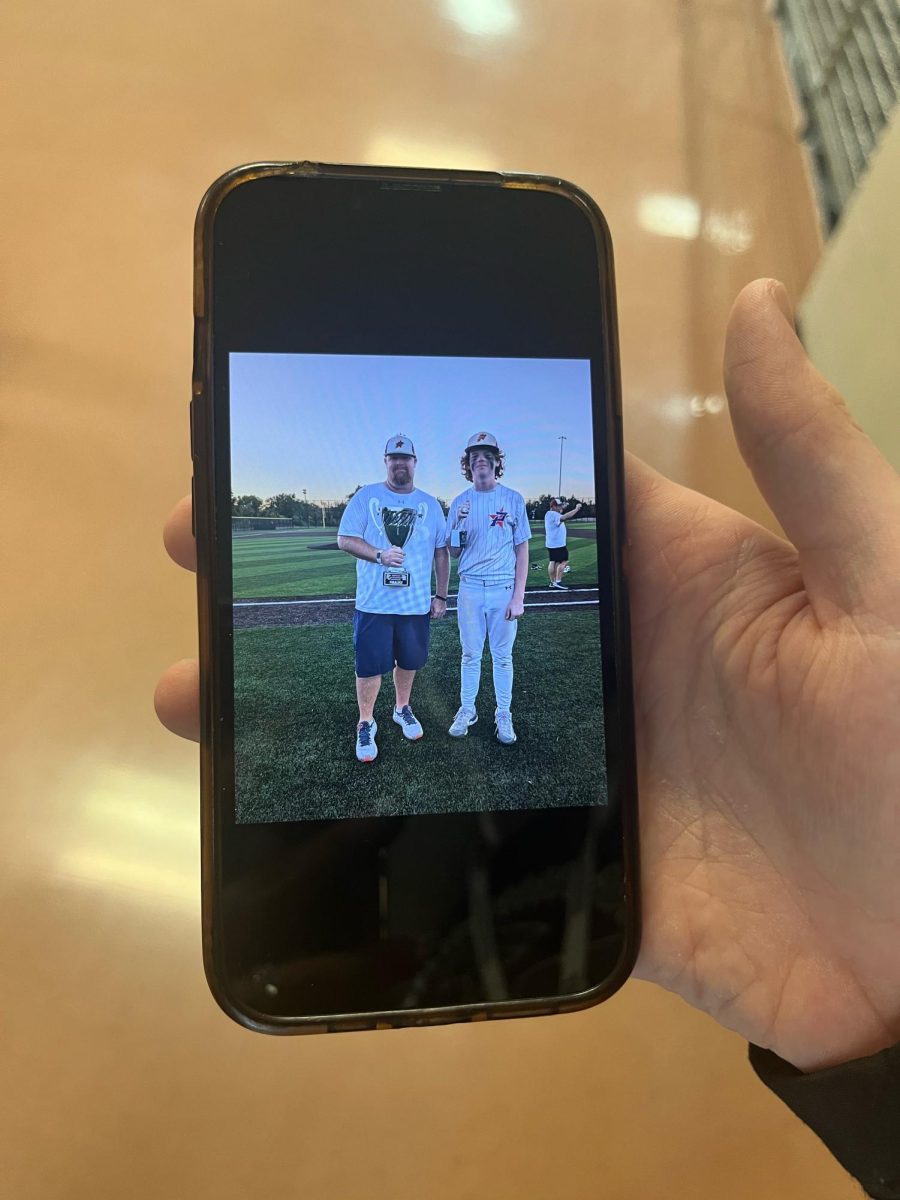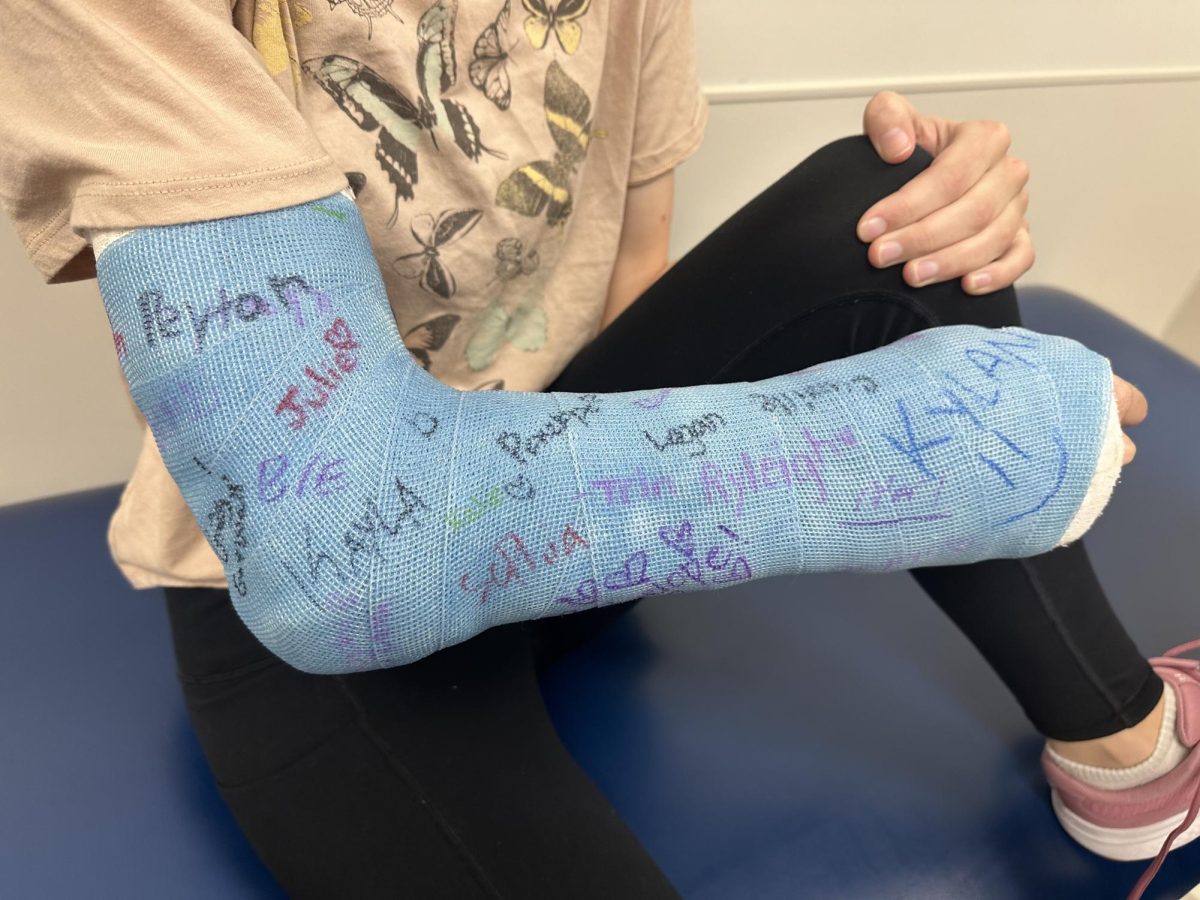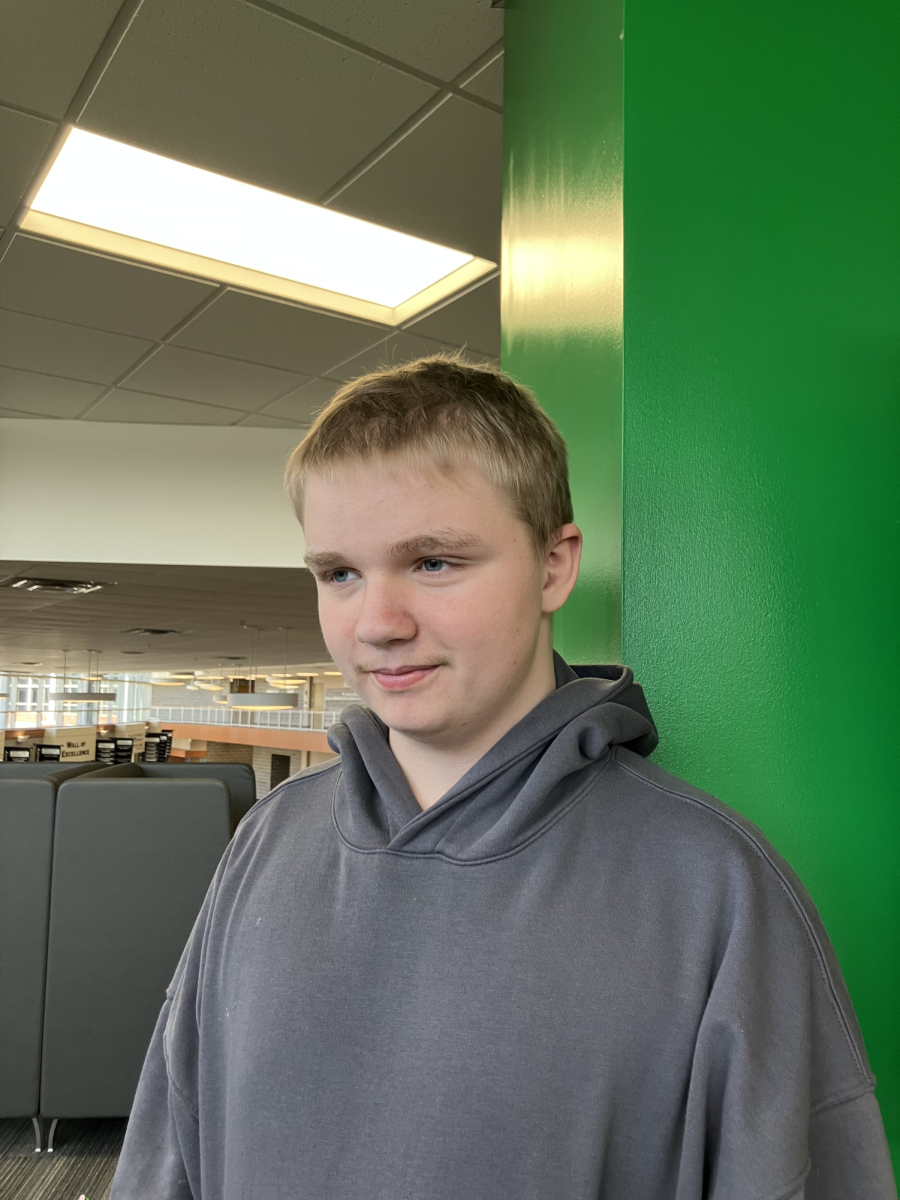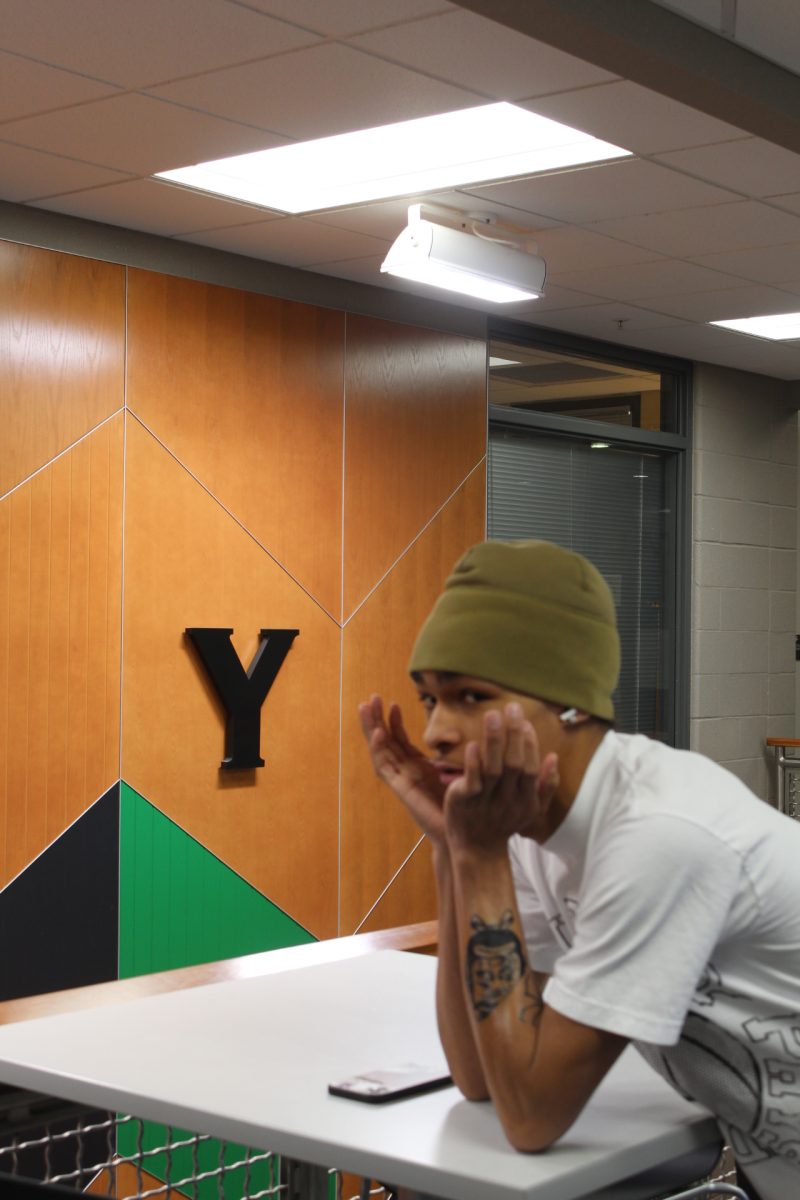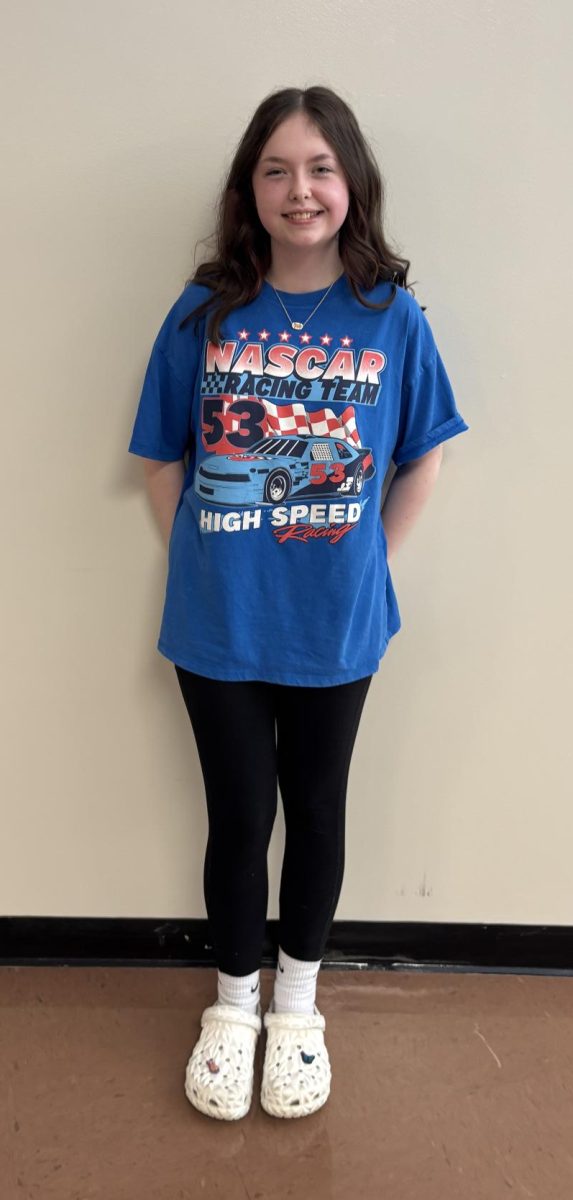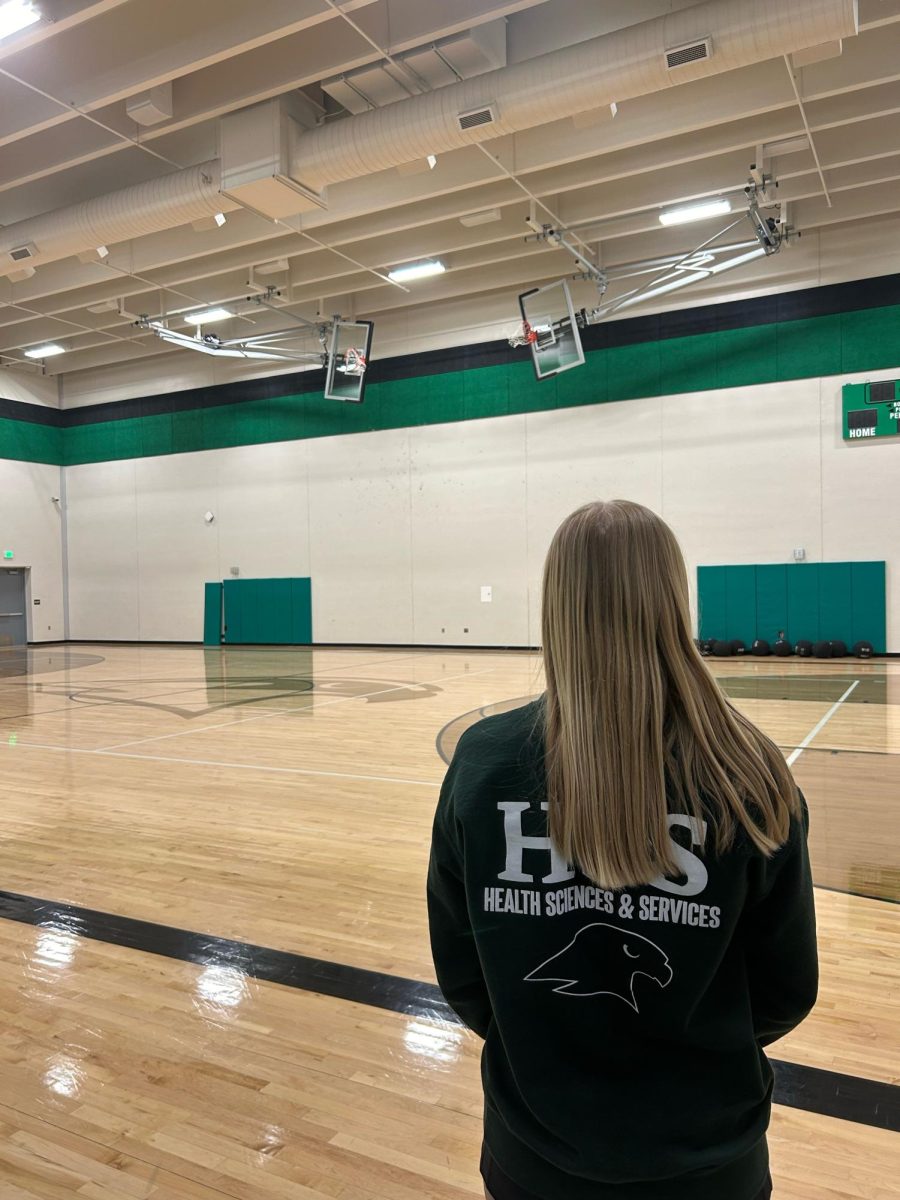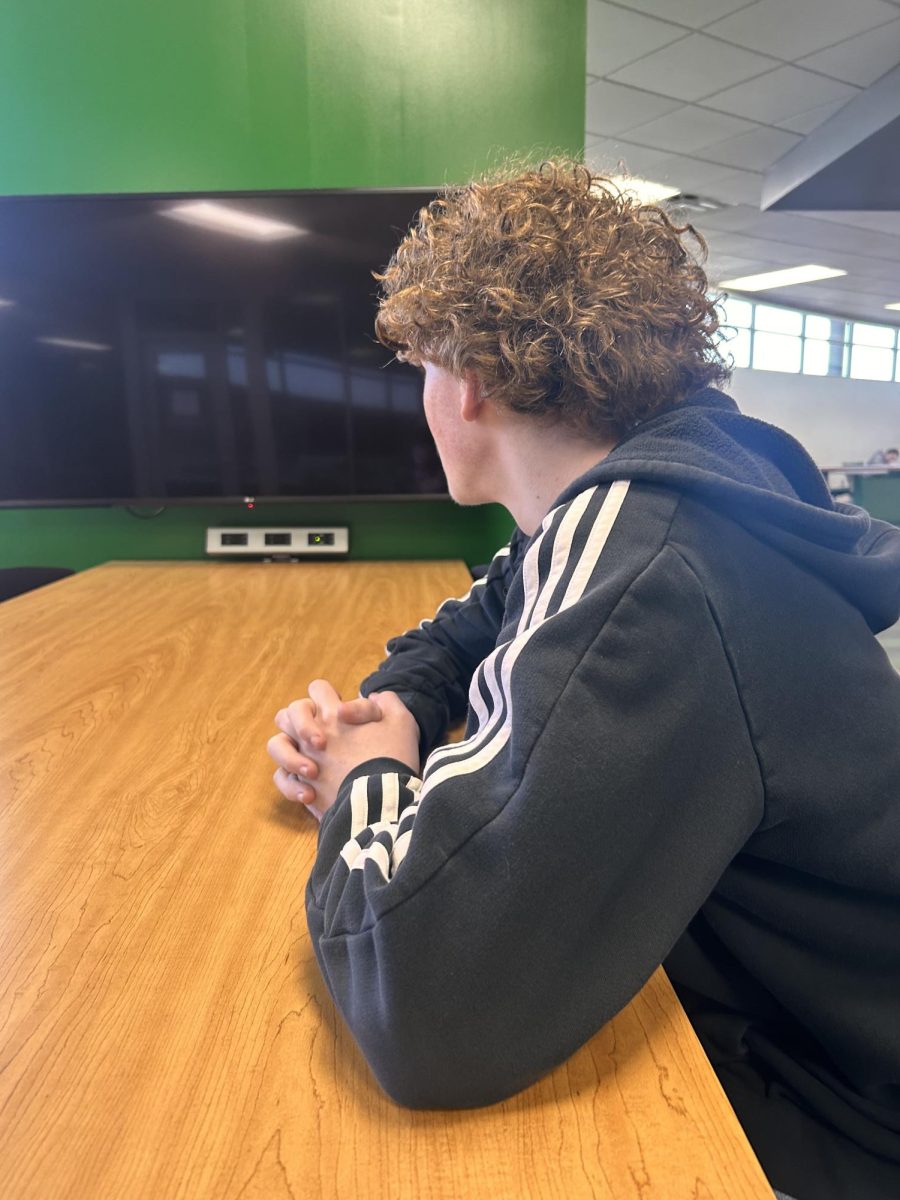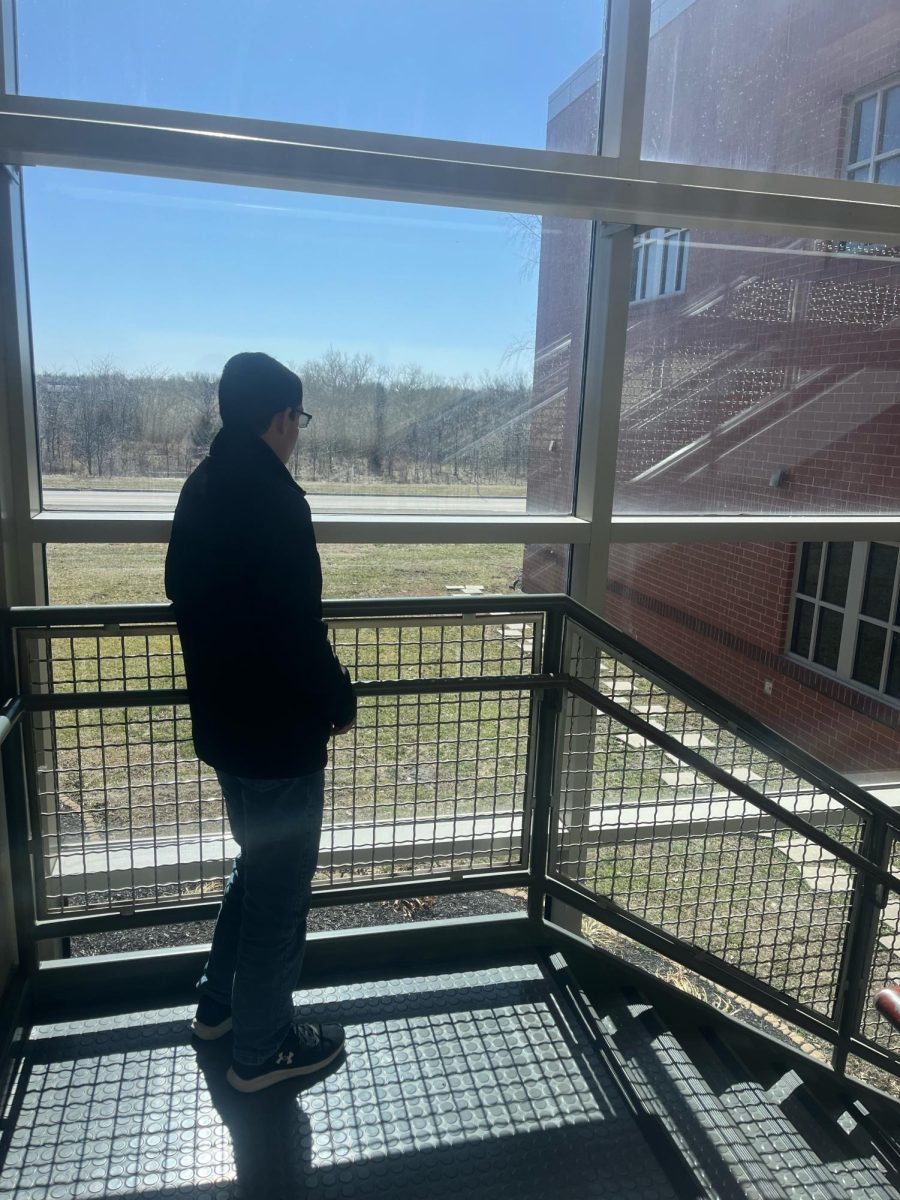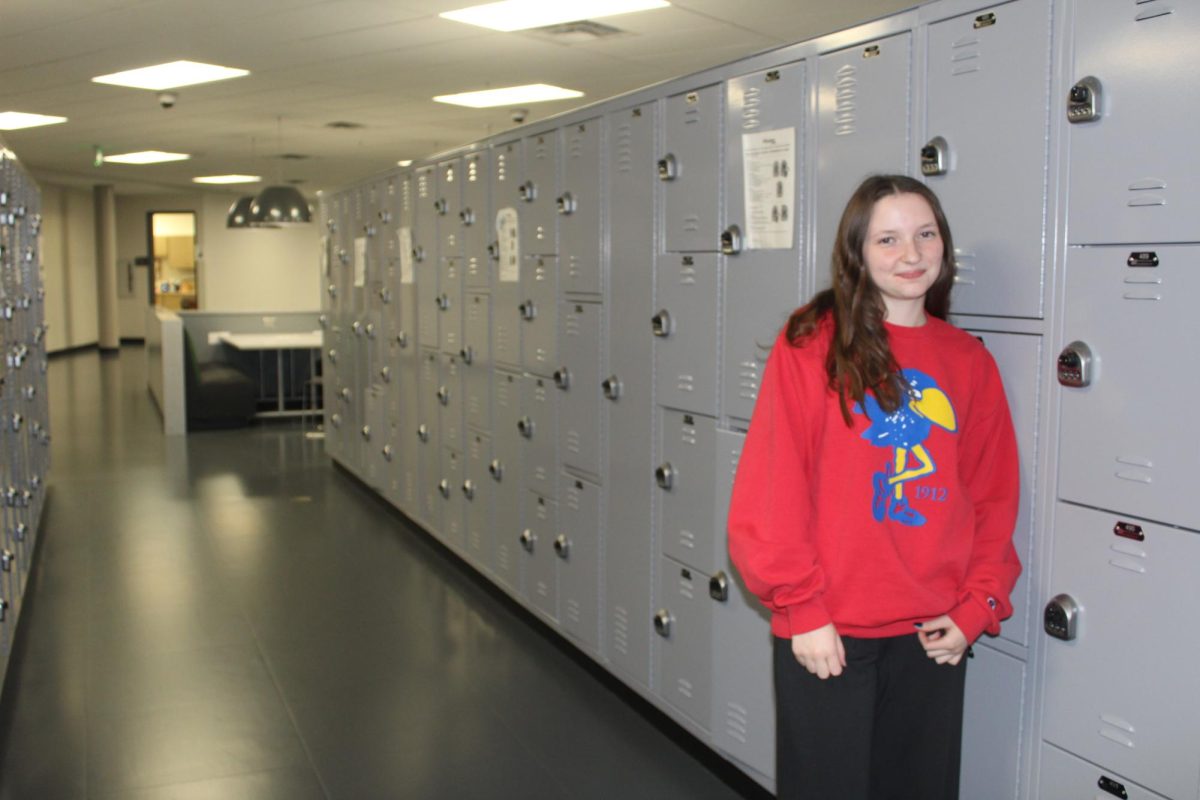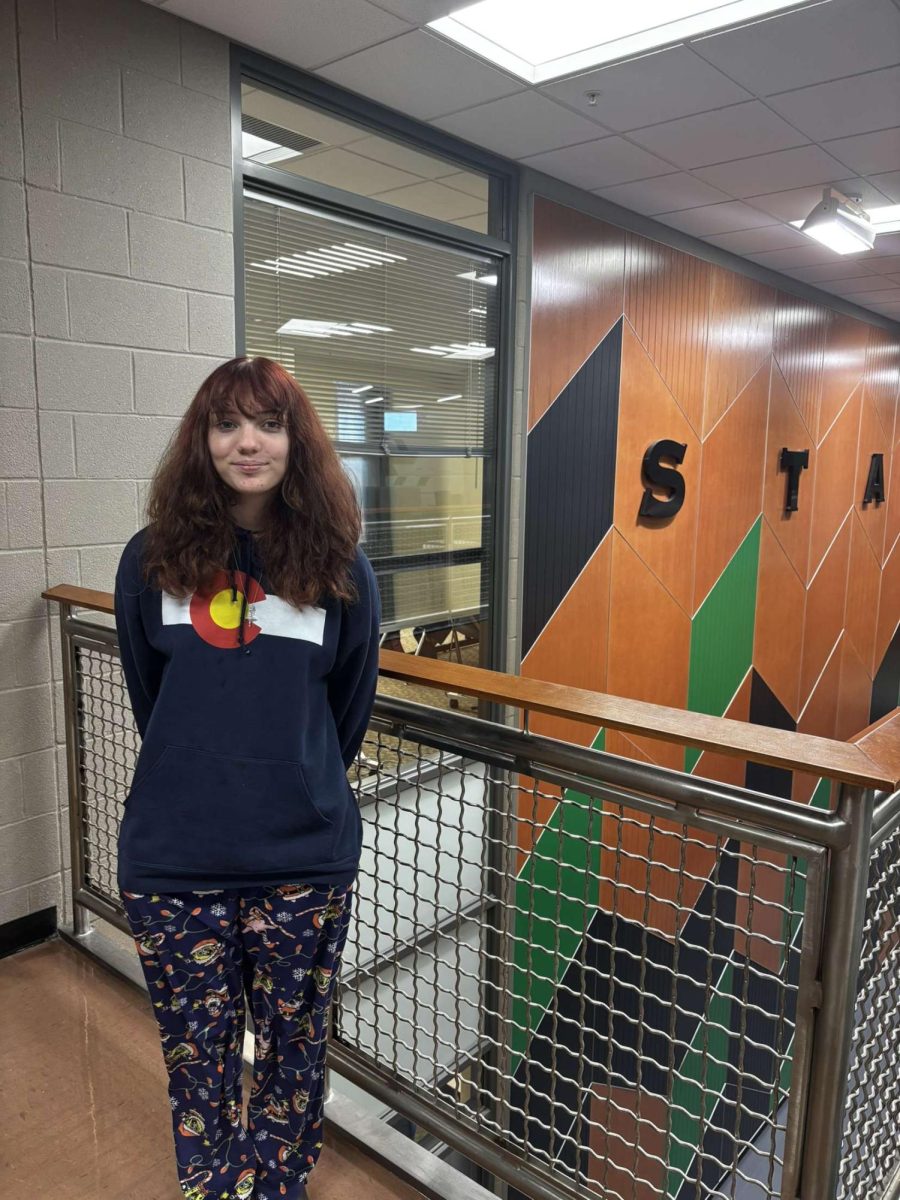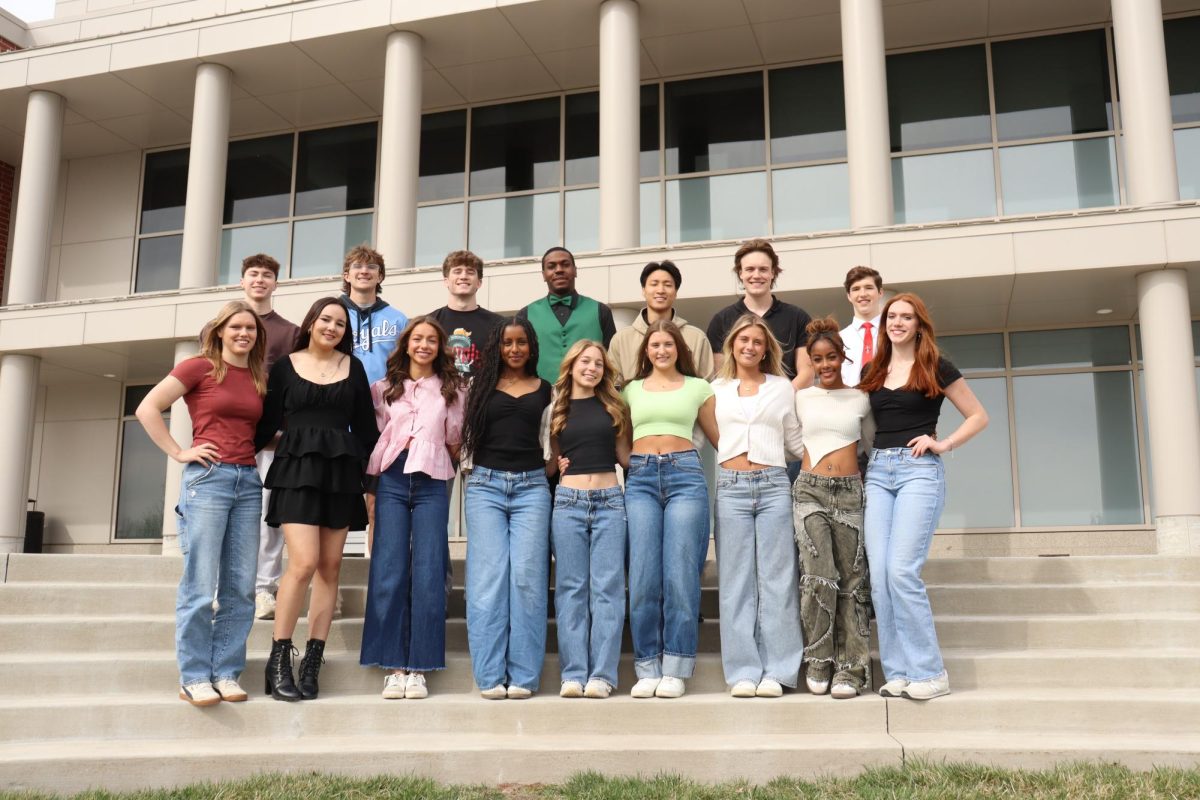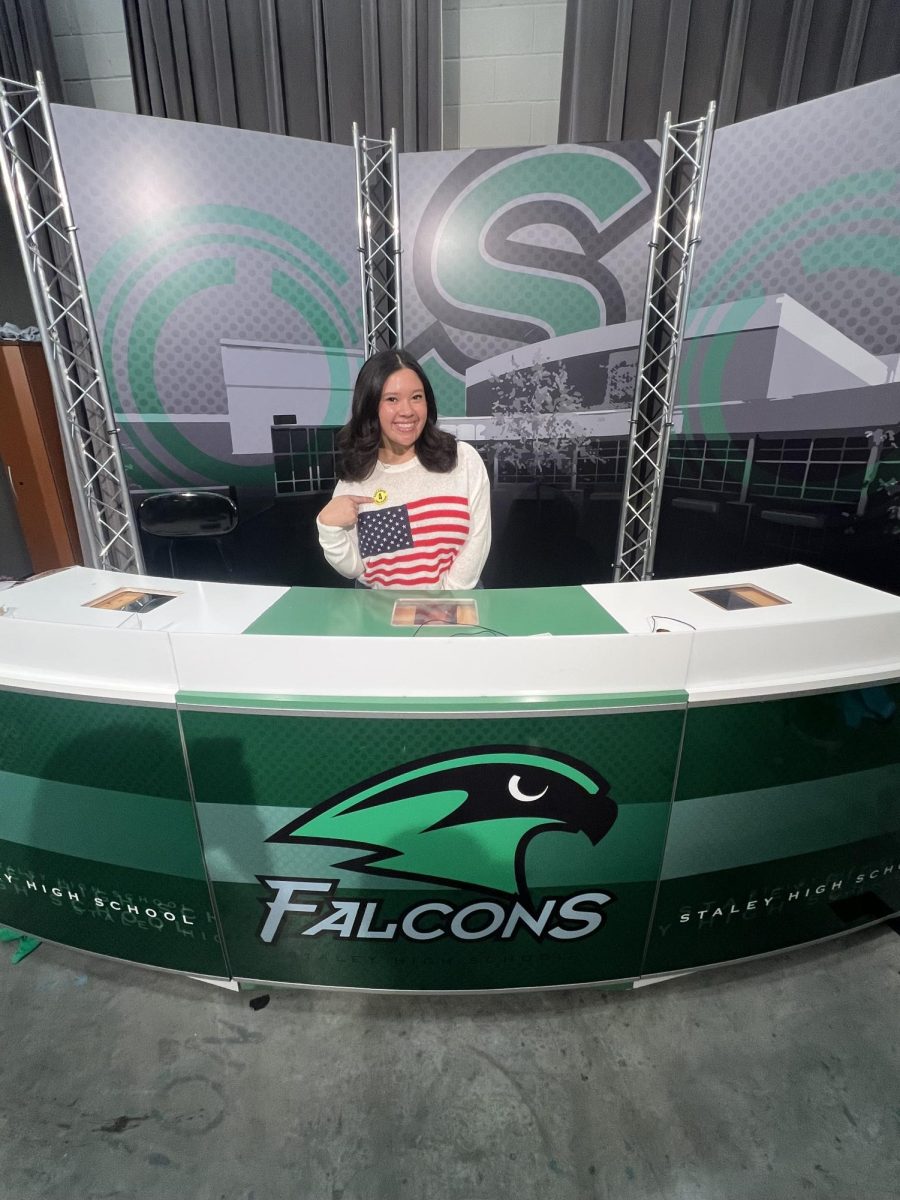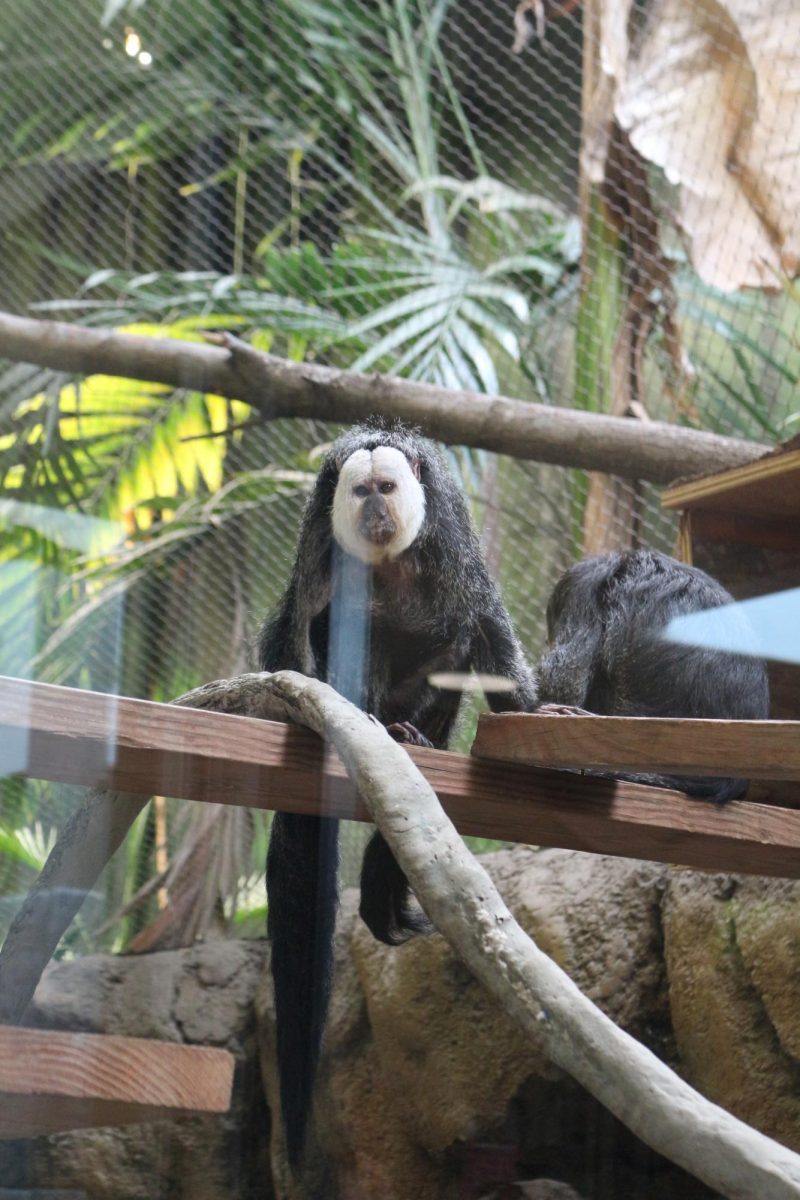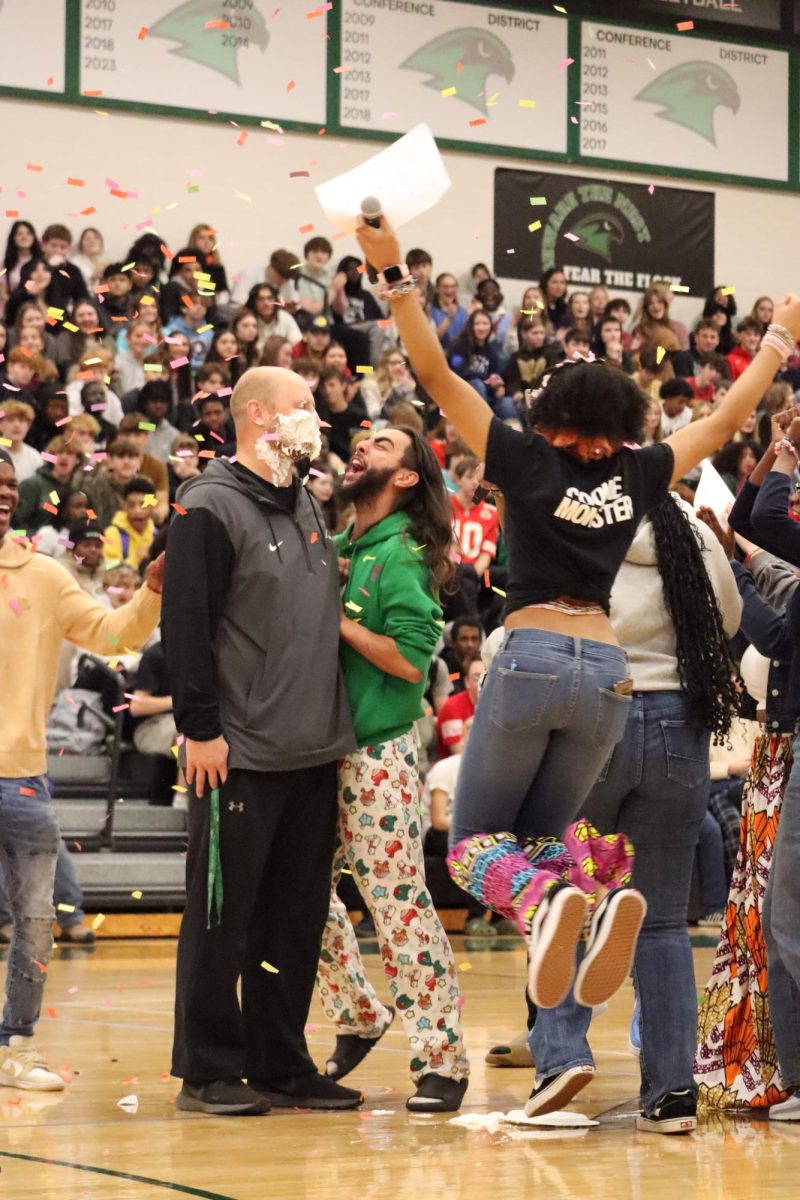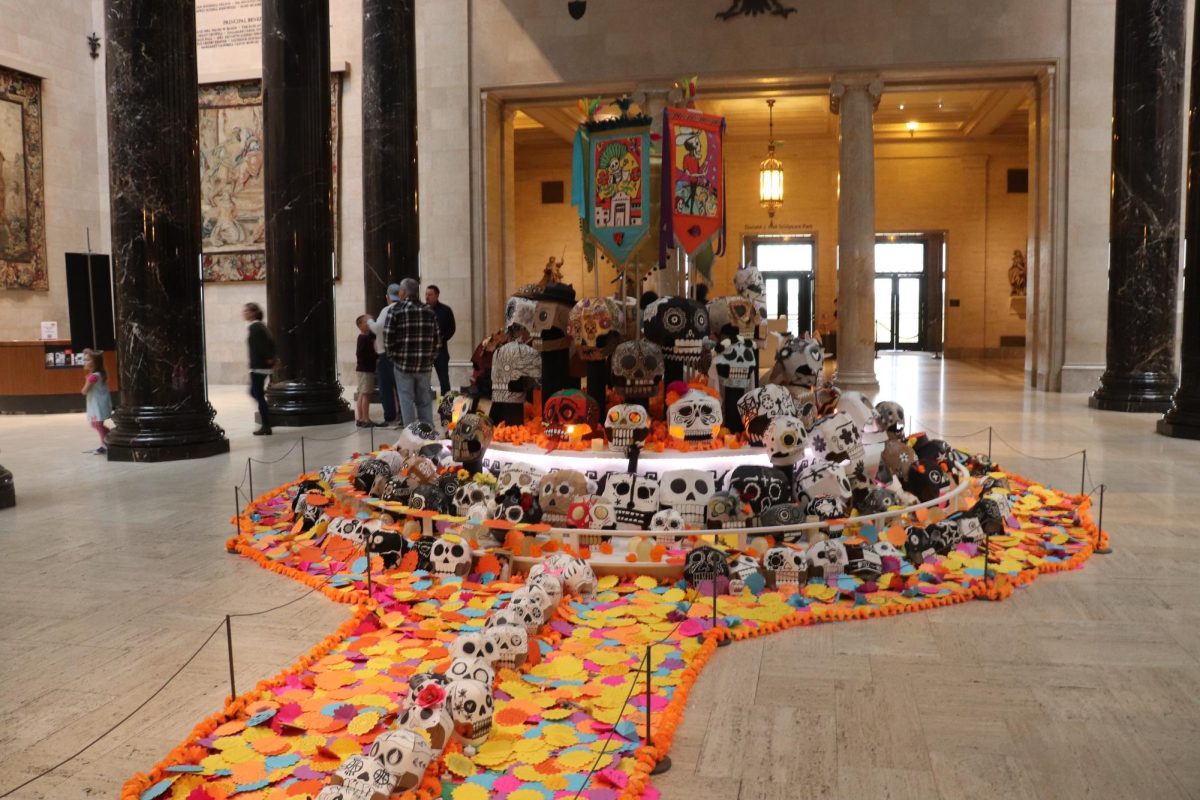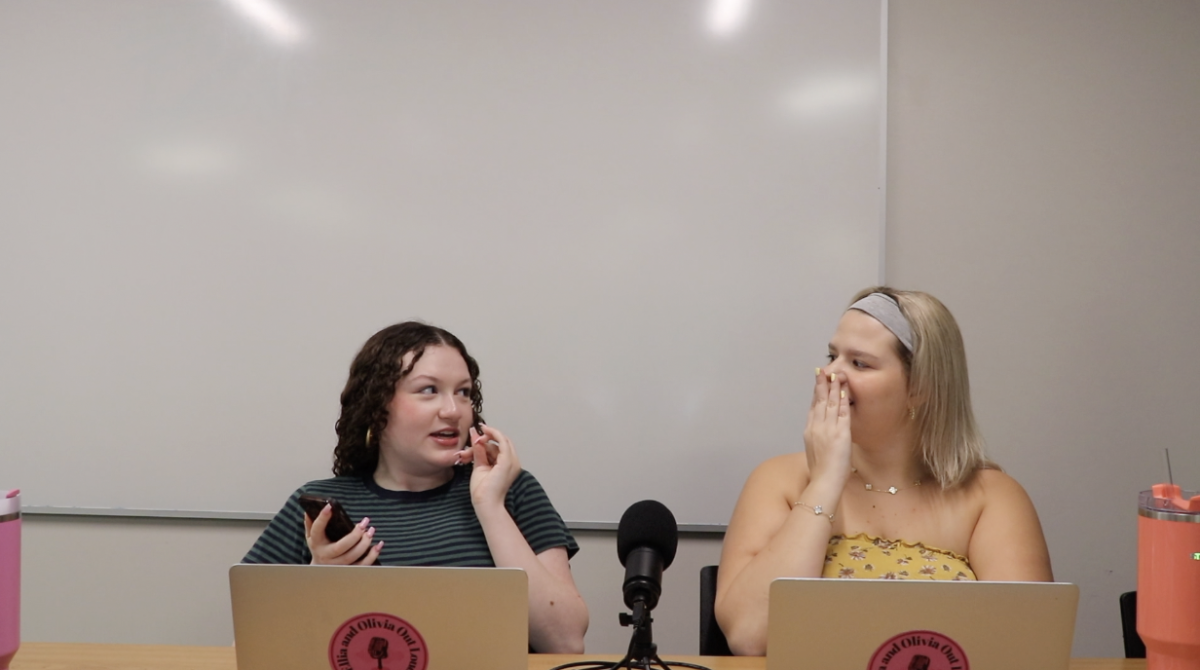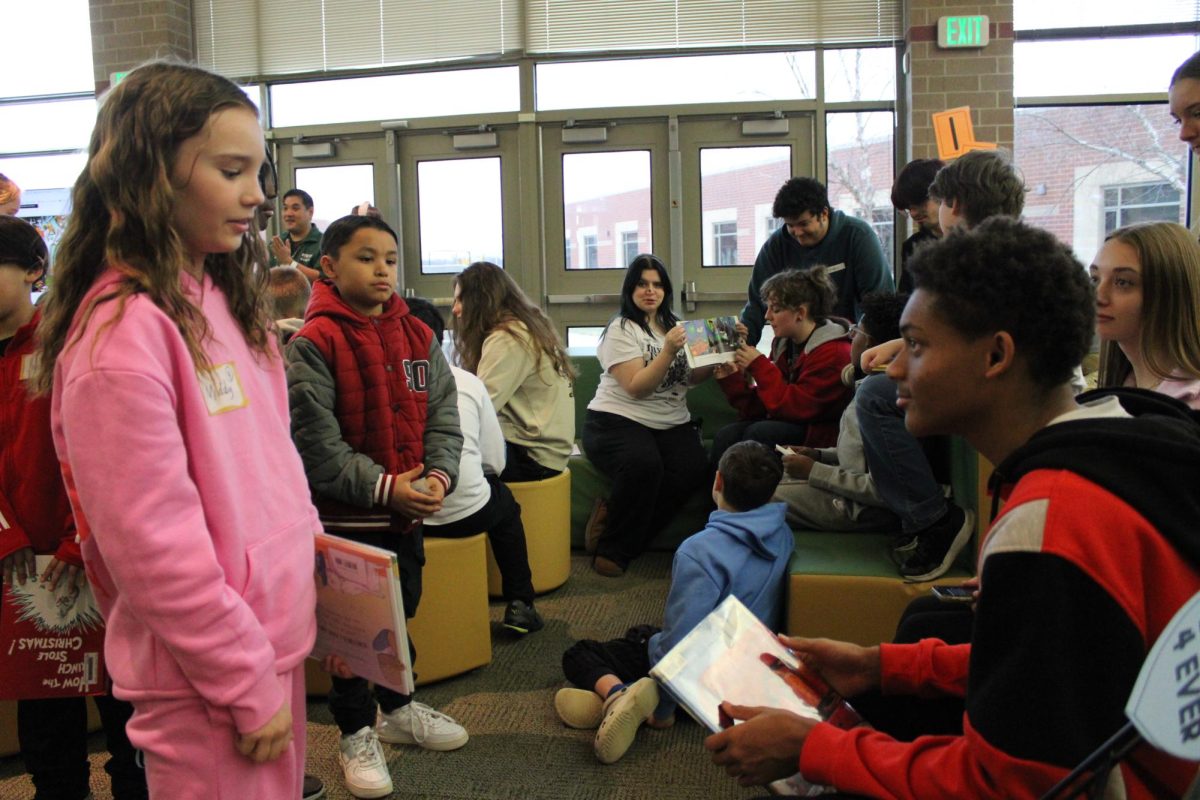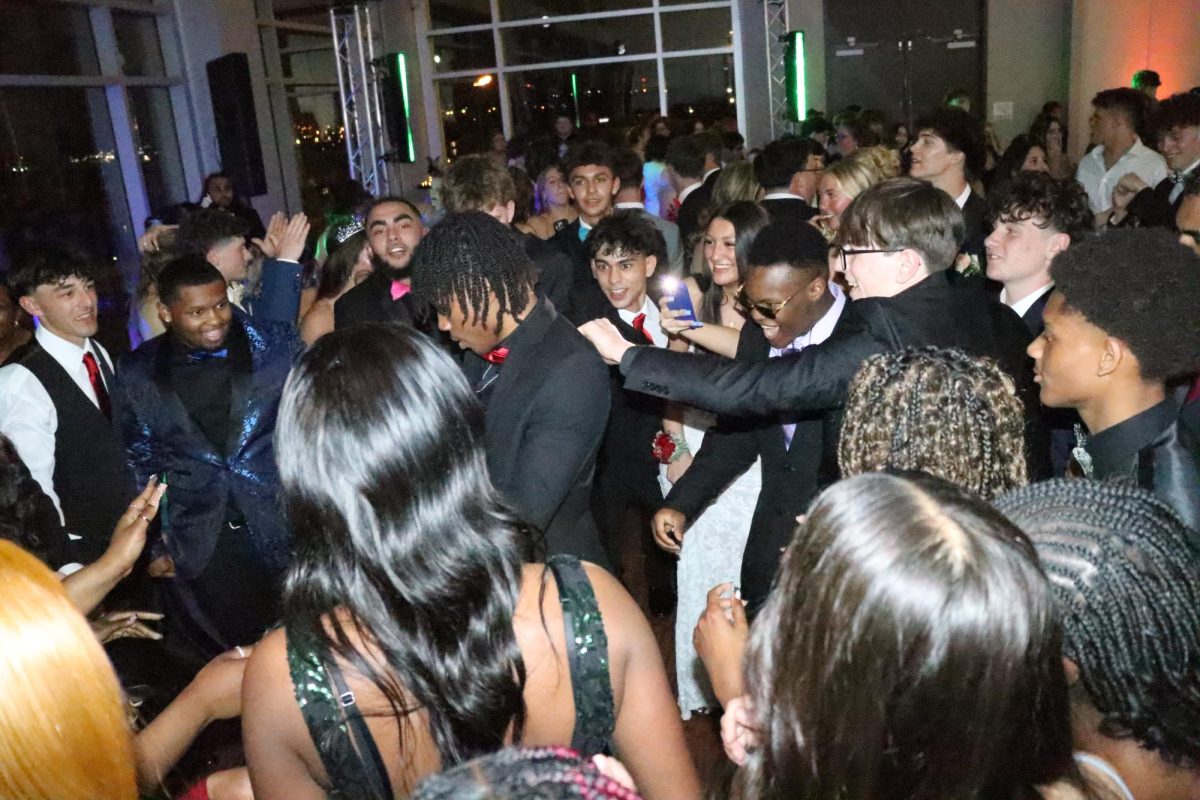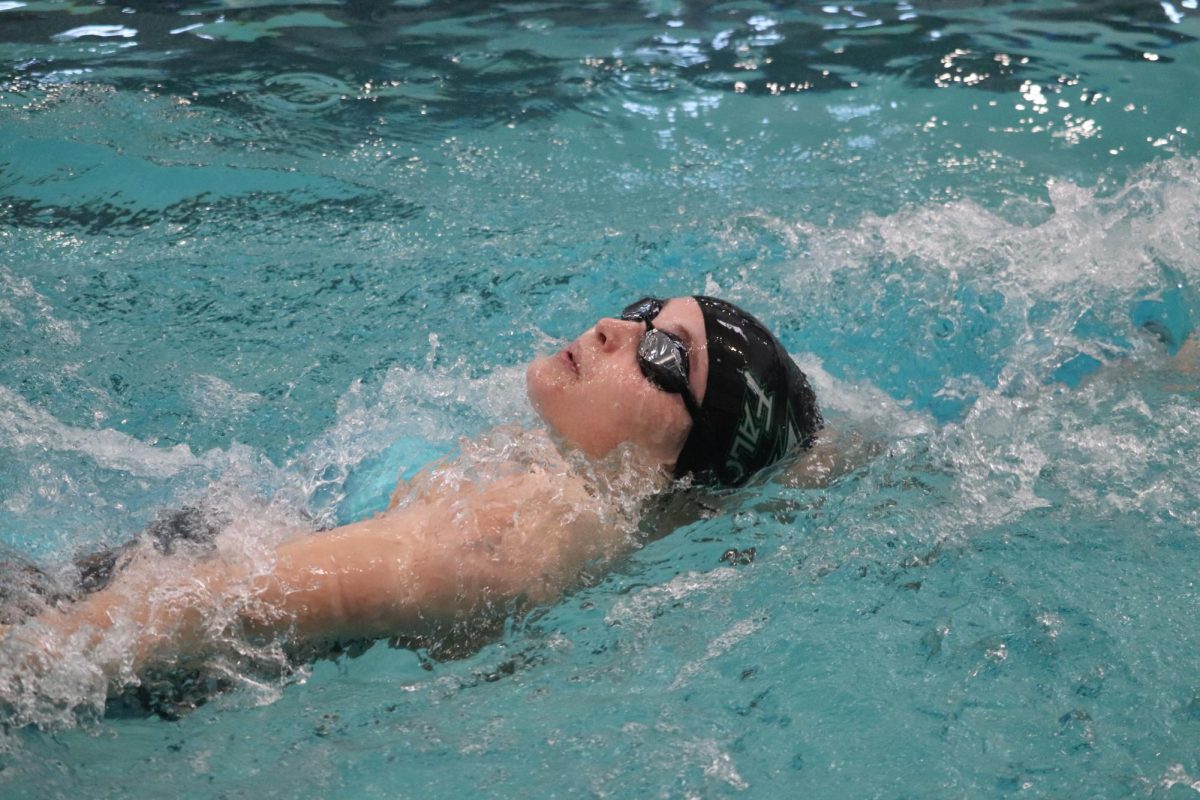Every Falcon Has A Story
“My mom had a very rough upbringing. Her parents got divorced when she was extremely young; I think she was around 2 years old when her parents got divorced. In Somalia, there’s a lot of fear mongering against divorce. It was very difficult for her mom, and her mom also had a lot of kids. My mom ended up being raised by her grandma because her mom had a lot of stress on her with all the kids she had. She got into some bad influences and had a very rough childhood. That was also during a time of war. But she actually ended up pregnant around 13 or 14, I believe. And there’s a lot of purity culture there, and you’re not supposed to get pregnant without being married. So, there was a lot of shame and things like that. Soon after she gave birth, she ended up having to leave Somalia because the war there had gotten so bad that she just couldn’t stay anymore. So, she ended up leaving and having to go to Kenya. It was really hard, and she ended up losing the child as well. She met my dad when she was around 17 or 18. His family was already part of an immigration program to America, and if she were to marry my dad it would have made it easier to come to America. So she got married really quickly, and by the time she was 20 she already had my older brother. And a couple months before they were set to leave to the United States, she had my sister. She has a GED; she got one when she came to America, but that’s it. In my culture there’s a lot of pressure on gender roles, and my mom was very against that. If you’ve never seen what it’s like to be in a third world country, and to see so many uneducated women, their whole lives are based on what they are to someone else and they’re not valued on education or skill, or things that are valued here. And it’s depressing to see that. I’m glad that my mom always valued education. She always reminded us that this privilege can go away in two seconds, and so many people don’t get their opportunity. Like, my grandma got married at 15, and I’m 15, and I get to do this. I get to sit here and have an education and talk about things like this. I get to drink purified water. I get to chew gum. I get to get food from a market and not worry about if it’s dirty. Don’t have to worry about where my next meal is coming from. Education is such a high value that people don’t realize. People don’t realize that it’s not a right, it’s a privilege. Being the daughter of an immigrant has made me value education. It’s made me value what we have in America. It’s made me value basically everything in my life. It’s made me value to be able to have such great privileges and opportunities that other women don’t get to have and don’t get to experience. I think about all the women out there, like the women in Afghanistan or other third world countries who would do anything to put their daughters in my spot or do anything to be in my spot. If my mom had never left Somalia, I would have been one of those women. Or my sisters would have been one of the women who have suffered so much and struggled so much.”
// Interview by Kore Blessing
“My dad inspires me to do good in school and in sports. He has a good job, and he’s very hard working. My dad does a lot for the family. He’s coached me in baseball. I feel like my dad wants me to get better, so he’s kind of hard on me. I think its good — when I’m not doing my best he says something about it. My dad helps me with school, he makes sure my grades are good and makes sure I’m on top of things. He motivates me. Other roles my dad plays — he’s my coach. With baseball, he’s kind of like a mentor. My dad would definitely be someone I call when I need help because he’s very responsible, and he’s always there for me.”
// Interview by Julianna Hernandez
“I always have this worry that people are going to ask me about the scar on my arm. It’s not something that usually comes up unless the person is really close to me, but I still feel like they’re going to ask. I really cared about it after my injury, it was a big deal. I didn’t get over it until a few months later. It’s not a huge deal for me anymore, but it seemed like it was a huge deal after I took my cast off because people hadn’t seen my arm for six months. It’s there, and you can clearly see it.”
// Interview by Mia Taggart
“Getting my first dog. It was KC — my sister picked the name. I don’t really know the reason. I was fine with the name; it was a simple name. It was a hotdog dog; he was just a funny dog. He would mess around and do stuff. After my sister got hit with a seatbelt on the bus because she stood up for me, it helped me calm down a little easier. When I first got my dog, it was exciting because: NEW DOG! We had several dogs before I was born, so it was the first dog I ever knew and got to be with.”
// Interview by Kezia Mensah-Apau
“I run a sewing brand called Garments by Reed. I chose that name because my middle name is Reed. I was going to make basically everything. I was going to sew. I wanted it to get called Garment which is basically one piece of clothing that is worn to a high fashion scale which they called Garments, which is where I came up with the name. I’ve been running my brand for about a year now. This is more like a hobby, but I’ve still made money, so it’s not necessarily. But the money I’ve accumulated over time selling stuff because the sales have been sporadic as sometimes I might get some sales and sometimes I don’t, is close to $1,000 – $2,000, maybe more maybe less. The most difficult part of running my brand isn’t the sales, as that comes second-nature as practicing makes it easier, but I’d said the graphing and everything else is where it gets hard. The easier part of running my brand would be the sewing as I could sit down for hours and just sew. It’s not like math where you have to keep solving problems. It’s just, you know what you’re doing, and you just do it. I would say I’ve used sewing to just think about things while I’m sewing and have time to sew and use it as a stress reliever.”
// Interview by Jayden Ahn
“I was 5 before moving, I don’t remember a whole lot because I was very young. We lived in very sketchy apartments and like more downtown in like the hood and stuff. It just wasn’t safe at all or very fun. I think moving changed me for the better because now I live in a more safer environment. I know a lot more people, and it’s not a lot of sketchy things in my neighborhood now. A couple months after we moved to where I live now my little brother was born, and that was kind of like a special moment to me because I never had a sibling before that time, and we just grew really close. The worst memory I would say is when my grandma died a couple years later, we moved. I was 6 or 7 at a daycare facility, and all I remember is that my mom was picking me up crying hysterically, and I’d never seen her cry before, so I knew something was wrong, and that’s when she told me my grandma passed away. My mom, my dad, my grandpa, my grandma are the four main people I grew up with. In my old neighborhood there were a lot of shootings and hostage situations. Now where I live there’s none of that. It’s a lot better, hardly anything bad happens here. In my old neighborhood you always had to look for your surroundings to make sure nobody is following you and stuff like that, so now everywhere I go I’m very observant of where I am. I carry that around everywhere because my mom always taught me to look around in my surroundings no matter where you are because even being at school or something, anything can happen. I’m kind of grateful for the way I grew up because it made me a stronger person, I guess, and more observant.”
// Interview by Giselle Colbert
“You play a sport, and you really love it, and you’re like, ‘Oh, I’m going to do this forever.’ And when I was little, I was like, ‘Oh I’m going to go to college for it.’ One of my dreams was to go to the Olympics, and it’s just something I always wanted to do, and having all the injuries I had with gymnastics, it just kept setting me back, and it made me have to work twice as hard as everyone else because they were already so far ahead of me. And I just had to work my butt off to get to where they were, and it just took a lot out of me because I was working so much harder than everyone else. It was really hard on my mental heath, like I would go home and cry about it, and it was getting to the point where it was really hard for me to work twice as hard. It was exhausting going to school then like 4 hours of practice. It takes a lot out of you. It kind of just impacted my life. Like now, not doing it. I was always doing it. Now I’m bored because I’m not doing anything, and it’s hard going from four hours, three times a week, and then it just was all of the sudden stopping. It was also really hard on my body then because I was really sore, and it was hard to move sometimes. I just stopped. I have done volleyball for like I year when I did gymnastics, but this year I wanted to take it more seriously, and it was hard starting a new sport because you have put your love in that sport into a new sport. It’s hard, but it brought me joy to not be bored, and it gave me something to do and stay active, and it was fun to be more competitive in a sport I enjoy and not have to feel like I’m choosing another sport over this one. Making the decision, that was the hardest part. I was back and forth and my coaches weren’t treating me well and I had one good practice and wanted to stay for another year, then had a bad one, and I was like, ‘No, I can’t.’ Every day it changed, and it was hard. When I went to the doctor for my knees, he was like, ‘You should take three months off.’ That’s when I was like, ‘OK, I should stop.’ And that was kind of the thing that gave me my answer because he was serious about it. I have thought about going back. When I stopped, we were in the middle of getting ready for another meet season, so I didn’t think that was going to be my last one. I kind of want to do another where it’s like, ‘OK, this is my last one.” And you know it would be special. I know I’m not coming back because I didn’t know that was going to be my last one. So yes, I have thought about going
back.”
// Interview by Finley Lauby
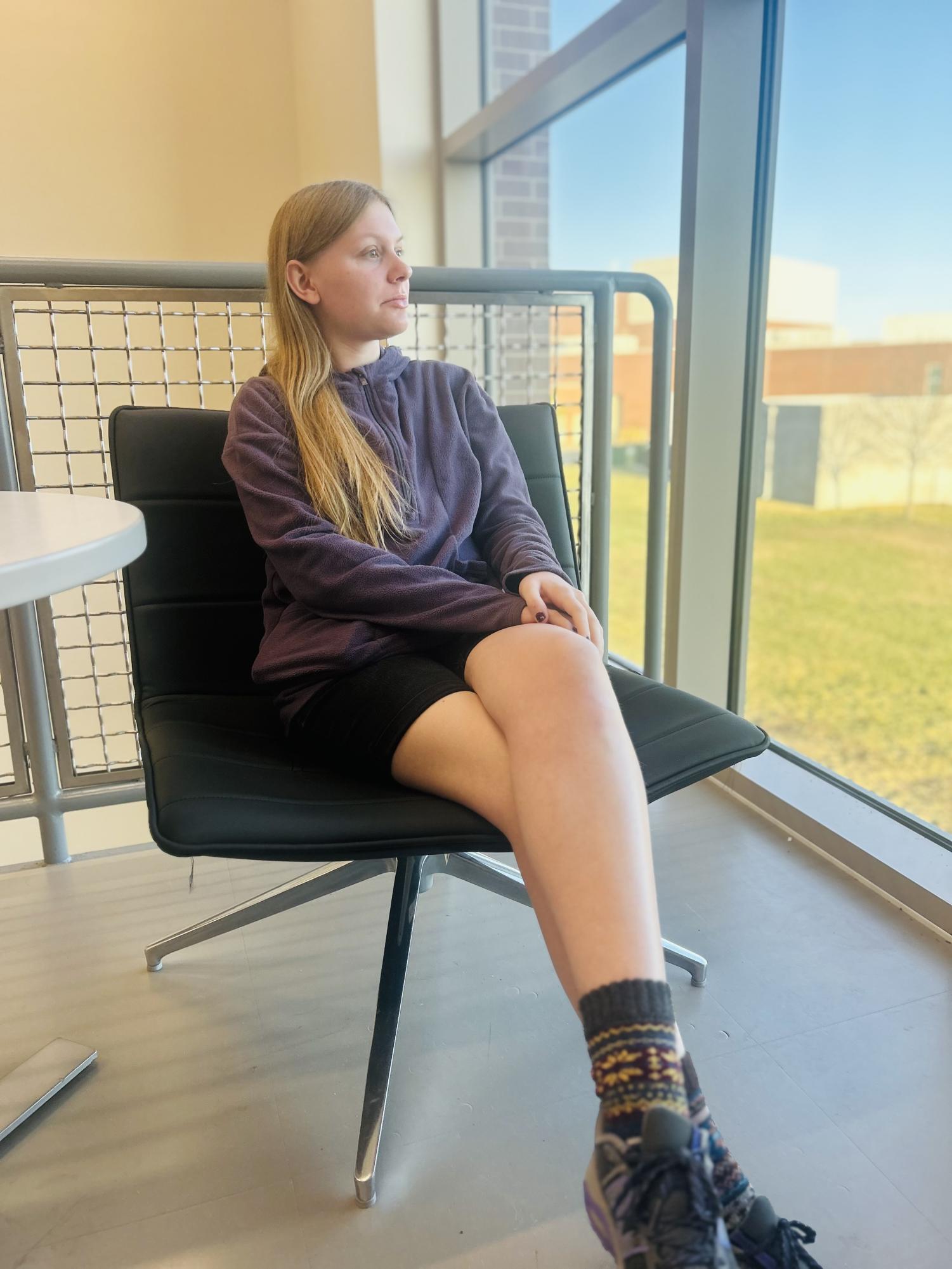
I’ve been seen as the villain, but I don’t want to be seen as the villain. It’s hard being the oldest sibling because there is so much expectation put on me that is not put on my little brother. I love my brother but sometimes I feel jealous that he has it easier than I do.
Failing has always been in the back of my mind. What if I fail? What if I fail my entire life? What if I fail high school? What if I fail my job? What if I fail to impress my parents? The fear of failure is a constant reminder to not fail. It’s the perfectionism that’s been engraved into me as a kid.
// Interview by Hadley Byler
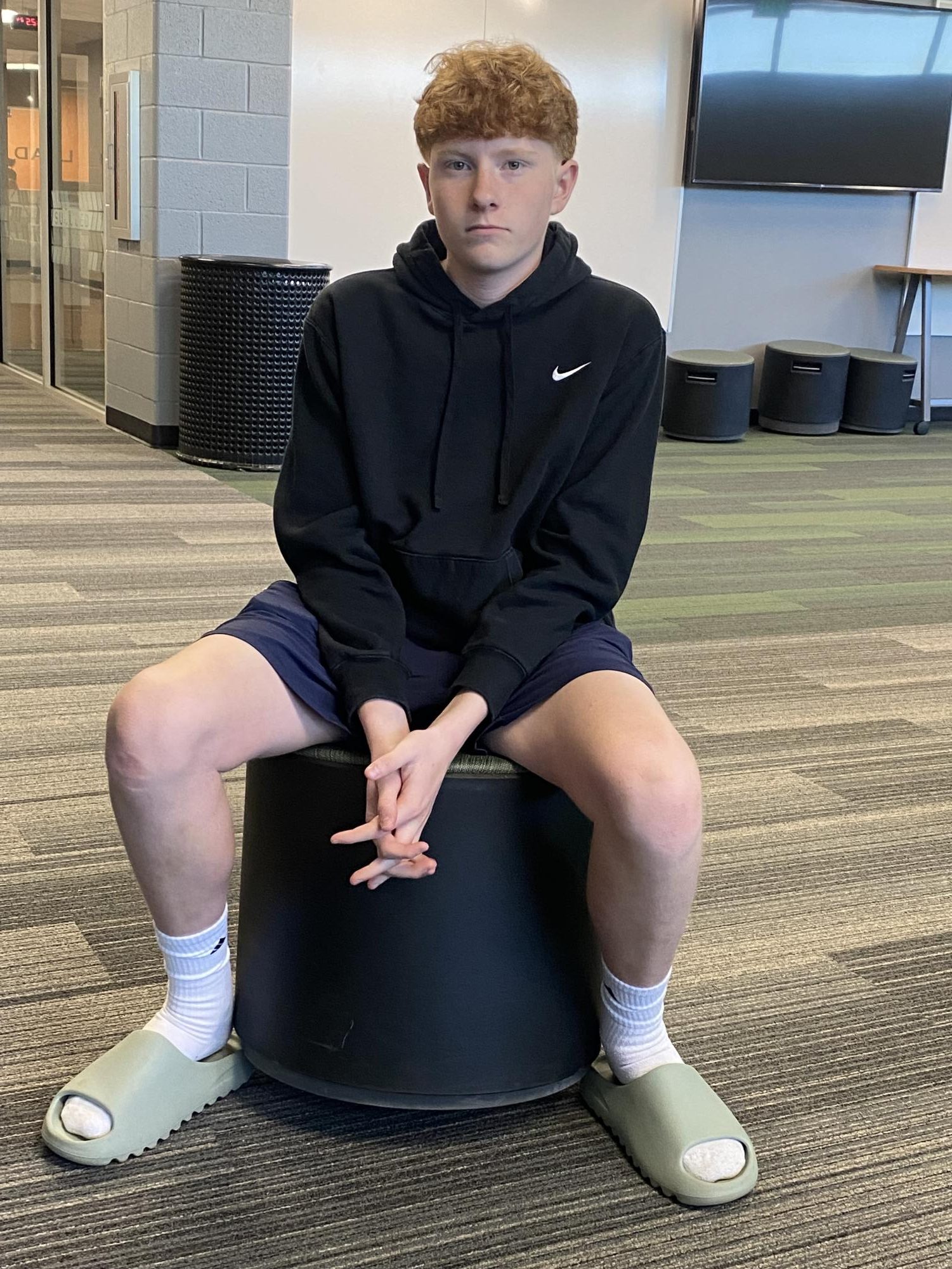
Sometimes I wait until the last minute, or I’ll hold onto an assignment for a really long time. My parents are very strict when it comes to grading, and my dad, he’s never had good grades, so he always wants the best, and I don’t think he realizes how hard that is, like to get an A on every test or a B on every test or submitting every single assignment on time. I mean, hard work does pay off, but there is definitely times where I just don’t want to do anything.
// Interview by Nicholas Lakey
My grandfather died around the time that COVID was happening. My grandfather took care of me for a long time, and it’s hard to get used to not having somebody in your life that took care of you all your life. My dad works a lot, and so when my dad was working, my grandfather would take care of me and give me food and make sure I wasn’t starving or anything. My best memory with him was going fishing. It wasn’t planned, but we had a lot of fun, and we caught a lot of fish. Before he died, he had already been to the hospital once because of his lungs, and then he went back because something was happening to his lungs again, but when he died, he said there was a lot of fluid around his lungs.
I don’t think that his death changed much in our family other than the grieving and my dad still grieving over it. My dad was a lot closer to my grandfather than me and has a lot more memories with him. The biggest change for me was I am a lot more self independent, and I have to do a lot of things by myself now. Since my grandfather died during Covid it made it a bit harder to get past because I was locked up in my house, and I couldn’t be around friends or hang out with them.
// Interview by Madilyn Yellman
I think it was hard when my uncle died because how close I was with him. He helped me fix my motor bike, and he took me and my sister fishing, I think that’s an important memory of mine and his because it reminded me on how me and my sister caught the same type of fish at the same exact time. I first thought we caught each other’s reel, but then it started to move to try and escape, and they knew it was just a coincidence. When we pulled the fish up, we noticed it was the same type, same weight, about 5 pounds. Later, when we started to leave, we then saw a whole school of fish. It was funny because we thought that we caught each other, but it was just fish. I think that was a good memory because we had a fun time and that it was with my uncle before he died. I think my dad and his wife took it the hardest because that was his brother and her husband. I think what helped was just us praying, and over time the feeling went away.
// Interview by Mohammed Abu
Anxiety brings me a lot of sadness sometimes because I feel lack of motivation a lot with that. Talking to my mom — she always like has advice, and she’s a therapist, so that helps. But she also struggles with anxiety, so she has things throughout her life that she’s done: listening music, sleeping. I don’t know that it’s a healthy way to cope with it, but it helps me. Honestly, I think that doing sports it can — different aspects help my anxiety. Because I run, so it’s a good way to clear my head, but at the same time, it’s time consuming, and it takes time away from being able to study or do homework. So, that can cause anxiety a bit for me, but it’s kind of like a motivator, I guess. Something to look forward to a the end of the day.
// Interview by Peyton Baker
I lived in Hawaii, and we went swimming a lot in the ocean. There was this one trip in particular that I broke my arm when we went to this beach off the north shore in Oahu. It was a beach where turtles would come up to the shore and things like that. We went there one day, and there were signs up, like, ‘Don’t climb on the rocks,’ and stuff like that. And me being 11, I climbed on the rocks
and ended up breaking my arm. But aside from that, we kept walking down the beach, and there was this turtle, and a huge wave came up, and the turtle slid up with it. Got to see a couple sea turtles. There’s a lot that prohibits tourists and things like that from touching sea turtles or getting close, but we saw it from like five feet away.
Hawaii, I would say is OK. People think Hawaii is a lot more paradise than it is. There is a lot of things people don’t talk about because when you’re a tourist, you just kind of see all the parts people want you to see. But when you live there, you see there’s a big homeless problem down there. So most of the island don’t have a home or lives in a tent or the beach because it’s so expensive. What happens is people move out there, and then they don’t have enough money to keep up with house payment or general bills and things like that, so they end up on the streets with no way to get back to the mainland.
// Interview by Dayton Doolittle

